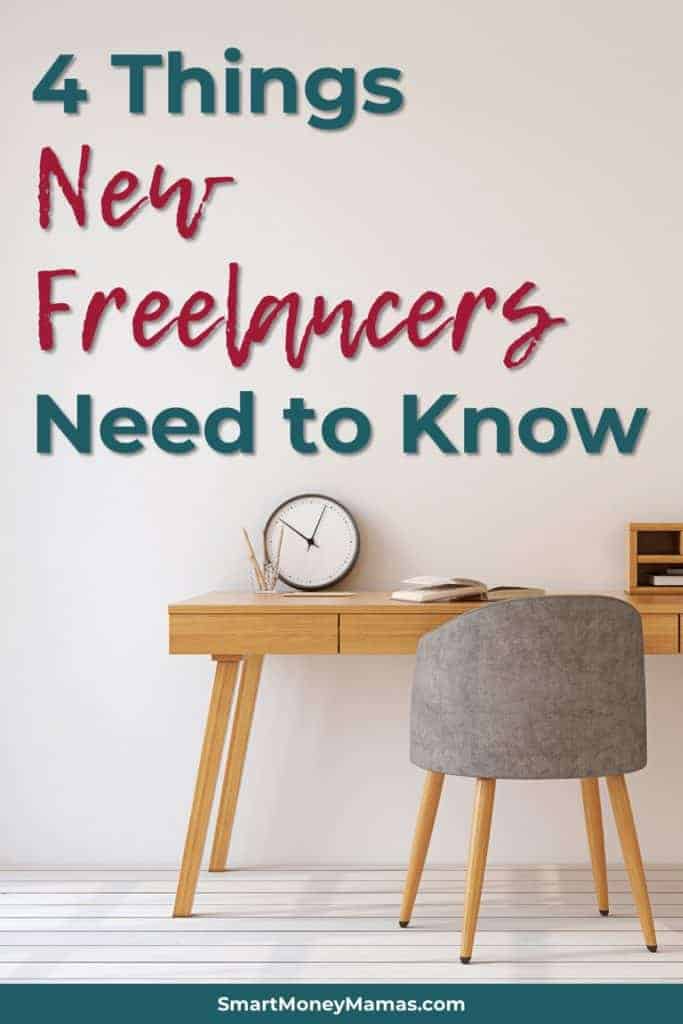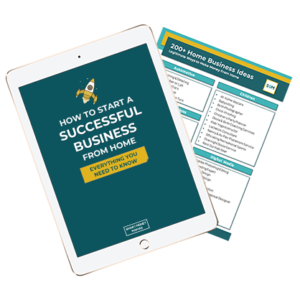At the end of November, I’ll be celebrating my son’s fifth birthday. He’s my first and only, and it’s hard to fathom how a tiny little human can influence so much change in an adult’s life.
When my son was born, I went from being a full-time marketer to a full-time mom to a full-time freelancer — all within three months of his birth.
While I enjoyed every moment of being a new mom, reality hit pretty quick.
Babies are expensive, and the cost of living in Toronto is high. My husband and I soon found ourselves in a bind, and that’s when I decided I had to go back to work.
Table of Contents
Discovering Freelancing
I knew that a traditional 9-5 job wasn’t going to work for me. Staying home with our son and raising him myself was important for me. So I started exploring other options. As I browsed through my phone one night, I came across a website called Odesk (now Upwork.)
At the time, the concept of freelancing was pretty novel to me. I had no idea that I could work as a marketer remotely. Picking my own hours, clients, and even an hourly rate on a digital platform was an intriguing thought. I decided to create a profile and test it out.
And the rest is history.
Five years in, and several dozen clients later, I’ve learned a lot about freelancing! As my work anniversary approaches, I’m feeling a bit nostalgic.
So, for those of you who are looking to make a move into remote work, I wanted to share four things I’ve learned over the last couple of years as a freelancer.
1. Freelancing Isn’t For Everyone
When people find out that I work as a freelance marketer, they think that it’s something I accomplished overnight. Or that I just got lucky.
Yes, I’m successful at it now. But it didn’t come easy.
There were endless days where I survived on three to four hours of sleep because I had to take care of a baby and build a network of clients. During vacations, I often stayed back in our hotel room to work on short deadlines while my husband and son enjoyed the pool outside.
And I will never forget that one time where I experienced a complete burn-out because I could no longer handle the workload.
As a freelancer, you have to sacrifice a lot. For some people, that may not be an option.
Before you jump into freelancing full-time, it’s important to know that the hours can be long and the competition extremely high. You also have to deal with some extremely demanding clients that make you question why you went into freelancing the first place. If you don’t like uncertainty, this might not be the gig for you.
But if you can handle the stress that comes with hustling to build a client base, I say go for it! I would still take freelancing over my old 9 to 5 any day of the week.
2. You Need to Learn to Say “No”
After my first year of freelancing, I realized that I had to learn how to say no to clients.
Because I was struggling to make enough income as a freelancer during my first year, I accepted almost every job. Most of the time, that meant compromising sleep or family time. I found myself burned out. It took a toll on the quality of my work and my personal life.

That’s when I realized that it’s okay to say no to clients and turn down projects. I realized there was enough quality work out there that I could focus on clients who valued my time and paid me fairly for my skills. I also let go of lower paying jobs and nightmare clients.
The more restrictive I got about picking up projects, the more balance I found.
As a freelancer, you’re working to be more available to your clients than a corporate employee. But I still like to maintain a strict balance between professional and personal time.
Choosing balance means you bring a higher quality product to your clients while avoiding the burnout that could lead you to leave your business entirely. Know when you have to say “no” so that you can say “yes” in the future.
3. Embrace the Unpredictability
Working as a freelancer can be erratic. Work often comes in waves, so you’re either all booked up with projects or left twiddling your thumbs.
Even though I’m lucky to have a steady stream of assignments coming from anchor clients, you still don’t get a check every two weeks like a traditional employee. Some clients pay right away, some don’t pay for 30 days or more. And then there are those lovely clients who need constant reminding (nagging) to actually pay your invoice.
Because freelancing can be quite unpredictable, it’s important to be prepared and save during high-paying months. Budgeting and planning ahead makes things far less stressful and allows a much needed financial buffer for quiet months.
Don’t expect a great month or a bad one to repeat themselves. Just keep doing the work and save when you can.
4. Your Reputation is Everything
More than 70 percent of my projects come through referrals. And I’ve been able to grow a solid network of clients through word-of-mouth.
In freelancing, reputation is key.

When I take on a new client, I go above and beyond to meet their requirements and provide my best work. Sometimes, that means taking a pay cut. But once I’m able to prove my work ethic and deliver quality work, I end up earning the client’s confidence. Which leads to consistent work. Often from the same clients at higher rates, or referrals to new clients.
As a freelancer, you are your own brand. So it’s important to maintain consistency in the quality of your work, always hit deadlines, and remain professional in your interactions with your clients.
Becoming a Freelancer
If you’re a newbie freelancer or looking to get into the gig economy, I hope these lessons can help you achieve success.
While my experience may seem scary, there’s nothing else I can think about doing now.
Freelancing is a lot of fun. Yes, there’s a struggle period when you’re trying to establish yourself and build a client base. But once that’s over, you’re able to enjoy every aspect of it.
I personally love the independence and flexibility freelance has to offer me. Also, I get to spend so much time with my son. And that is all that matters.
Understand that while competition is a reality of the game, there is always, always a demand for talent. Especially if you produce quality, professional work on time. It will take some hustle to get started, but you can absolutely build a full-time freelance business from home!
Are you a freelancer? What do you wish you knew when you started? Share with new freelancers in the comments!




